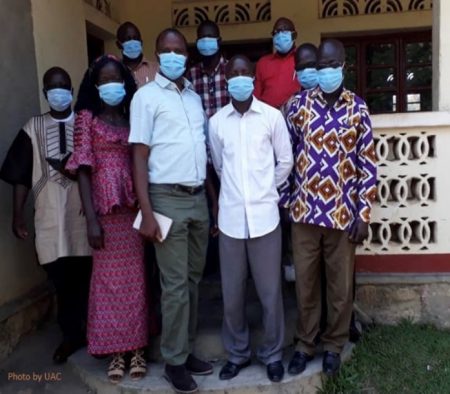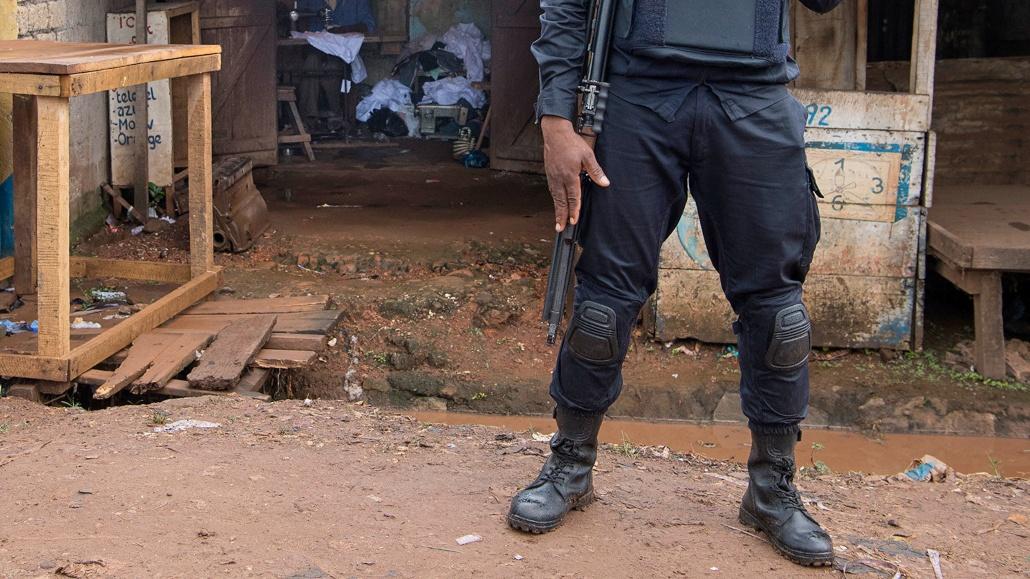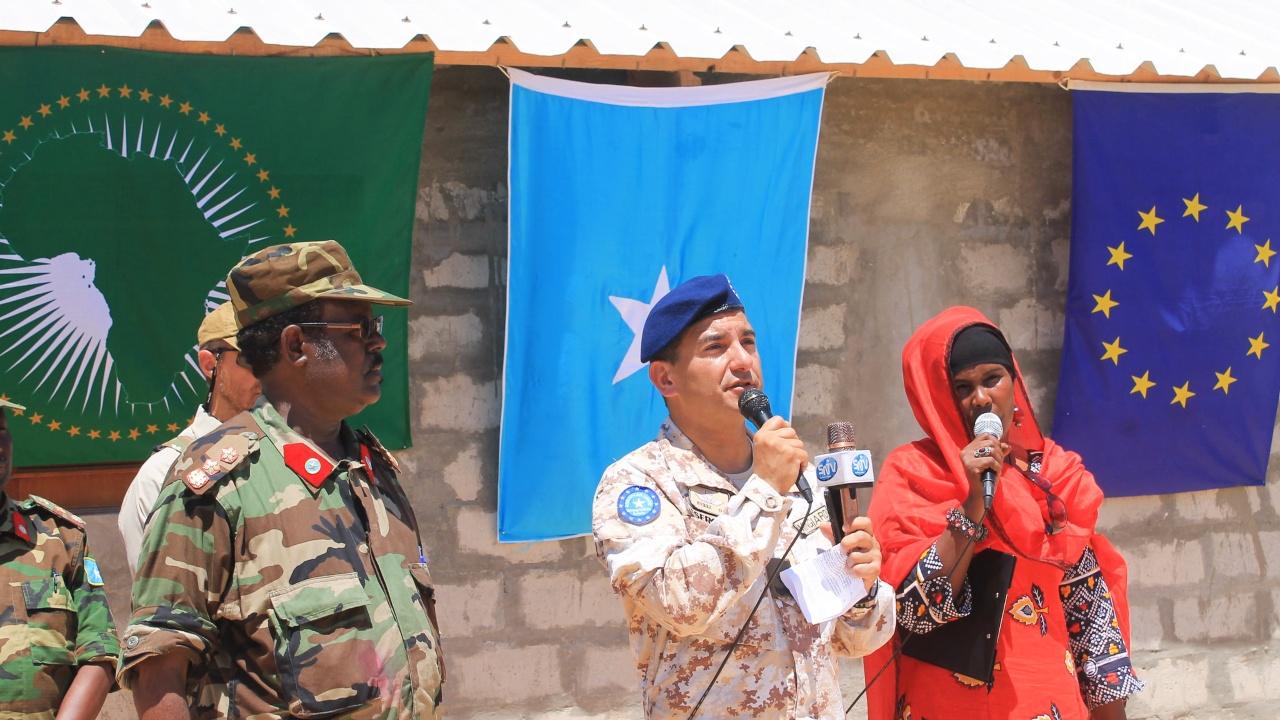In regions where the COVID-19 pandemic meets violent conflict, research projects face novel challenges. By adopting adaptive programming and remote organisation of data collection, a project in northeastern DRC was not only successful in obtaining findings but gained unforeseen benefits: local researchers, as a part of the community, developed a trust that drew different ethnographic responses.
Since March 2020, regions such as the northeastern Democratic Republic of Congo (DRC) have been addressing COVID-19 while continuing to experience conflict, causing the displacement of local people and economic fragility. In this context, for the majority of the population, both displaced and others, survival is the key priority and COVID-19 prevention comes second.
Conducting research in such an environment presents a double challenge, because the measures taken to reduce the spread of COVID-19 and the insecurity arising from local conflicts both impact upon human interaction and travel. As a lead researcher at the Anglican University of Congo (UAC), I explain the methodological experience of data gathering for a study, Belief in the time of Covid-19, into the impact of faith-based perceptions of COVID-19 on how public health messages are understood.
Researching beliefs related to COVID-19 raises a range of ethical and safety issues. While it is imperative to better understand the dynamic situation to develop appropriate responses, the research activity itself can expose researchers to the virus and, worse, researchers can be vectors of contamination. For these reasons, the three-person research team at UAC developed an adaptive set of methods, which were continually reviewed as the situation evolved. Such methods will be useful for other conflict-affected areas in a post-pandemic context, showing not only how remote organisation of research is possible but also beneficial.
Remote organisation and data collection with local teams
Our study aimed to understand the response of faith communities to the pandemic to improve public health messaging, covering four different sites in northeastern DRC: Bunia and Kasenyi in Ituri province, and Beni and Oicha in North Kivu province. All four sites are characterised by insecurity and COVID-19-related challenges.
As government restrictions on COVID-19 only allowed a small gathering of up to 10 people, and with limitations on travel, the research team recruited research assistants in each site. Six assistant researchers were recruited in Bunia, three in Kasenyi and three in Beni and Oicha. All were university graduates. Only one had experience in carrying out group data collection in an insecure setting.
Two workshops were held for the research assistants in Ituri to develop methods and discuss COVID-19 prevention measures. Further insecurity and travel restrictions resulted in training for the research assistants being conducted through e-mail and WhatsApp. Local research assistants were supported to prioritise their COVID-19 and security risk assessments regularly.

After describing the study, potential research participants received an informant sheet and a consent form was shared. After 24 hours, those who wished to participate were invited to complete their consent form and arrangements for interview were made, taking into account COVID-19 prevention measures. Research assistants organised the interview at the place of choice of participants. Interviews followed the topic guide and, through direct observation, researchers also documented the range of compliance with COVID-19 restrictions in churches, health facilities and funeral arrangements. The recorded voice data were sent back to Bunia through a password- protected WhatsApp or USB drive. Short written reports on field activities were also submitted to the DRC-based research team.
Using WhatsApp, the UAC researchers remained in daily contact with the assistants, sharing information on what happened each day and discussing strategies to overcome challenges, as well as responding to advice about management of the programme and data collection.
The benefits of community-insiders as research assistants
This project engendered greater equality in research between university-based researchers in Bunia and former graduates in their locality. Even in a context of extreme fragility, building the capacity of research assistants was possible, the project’s aims were maintained and some elements of the project were enhanced. Data was collected satisfactorily by deploying basic electronic tools that only required limited connectivity, and ensuring that there was regular and open communication.
The success of the project was in part due to the greater autonomy given to each of the research assistants. Assistants were able to decide on a contextually flexible programme of data collection and make immediate, adaptive security assessments.
We recognised that the project was enhanced by employing local researchers. They have the potential to move a project from a ‘community ownership’ model (where the research focuses on communities’ possession of a common concern) to relational engagement, in which trust among the community-based researchers allowed for frank disclosure of differences and, for our project, provided opportunities to identify where public health messaging was deficient. This was visible in two ways: in the relationship between assistants and the interviewees and in the relationship between the assistants. In gathering data, assistants had immediate access to the social networks important for the project, which helped to access previously inaccessible groups or individuals. The open, trusting conversations gave validity to the data. Assistants used the WhatsApp chat to create close bonds between themselves over distance, referring to themselves as a research ‘family’. They went beyond the professional engagement to develop close, supportive relations between themselves, swapping techniques and encouraging one another.
The research team is now analysing the data. This analysis is enabling us to identify where more profound investigation is required in the second part of the research and how better to prepare inexperienced research assistants in the future. It also shows the benefits of using community insiders as research assistants in order to understand and affect trust and meaning-making.
For our project, the data points to key areas to understand how faith and public health interact and provides a foundation from which to develop with the assistants and other stakeholders appropriate public health messages. Methodologically, we have learnt that despite both COVID-19 restrictions and insecurity challenges exacerbated by fragile conditions in Ituri and North Kivu Provinces, resilient, pragmatic and relational approaches can contribute to collecting primary data in order to understand faith perspectives on disease.
Photo by Mathias P.R. Reding from Pexels.






Congratulations, dear Professor